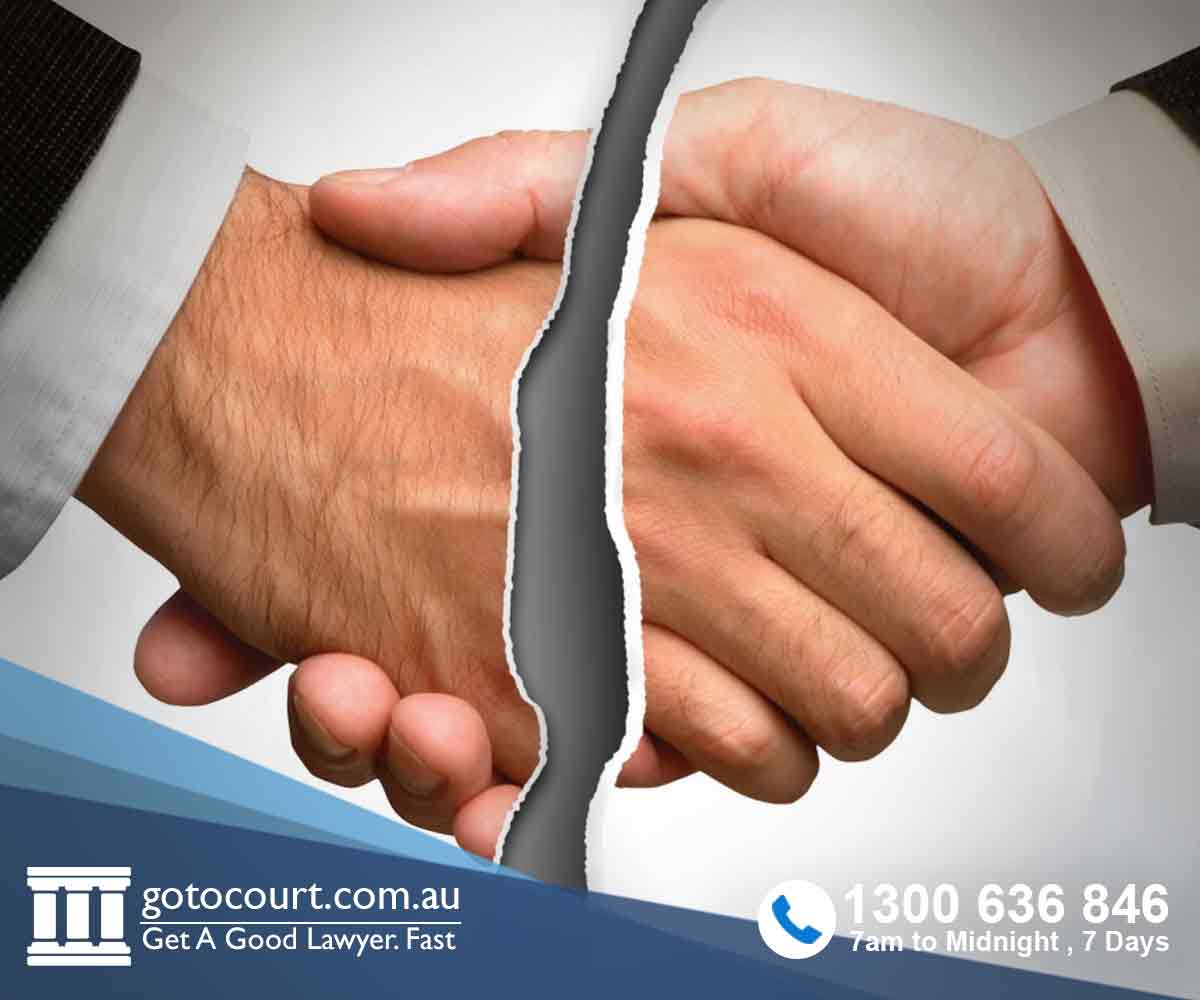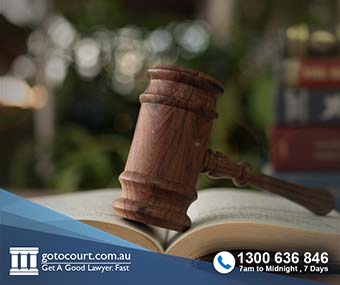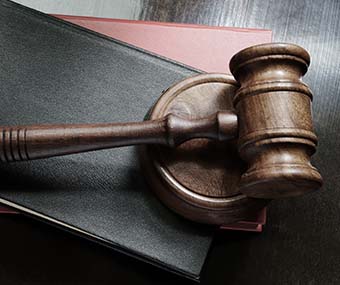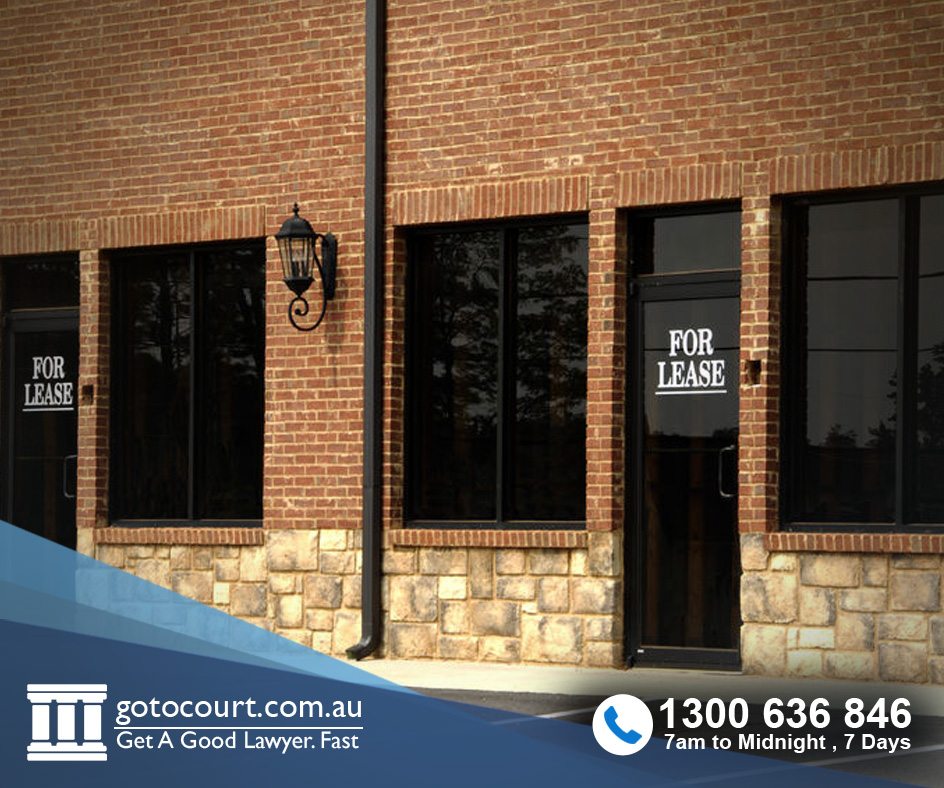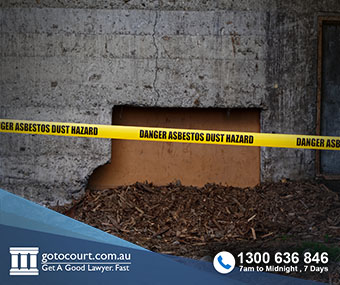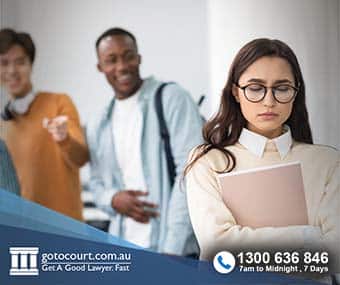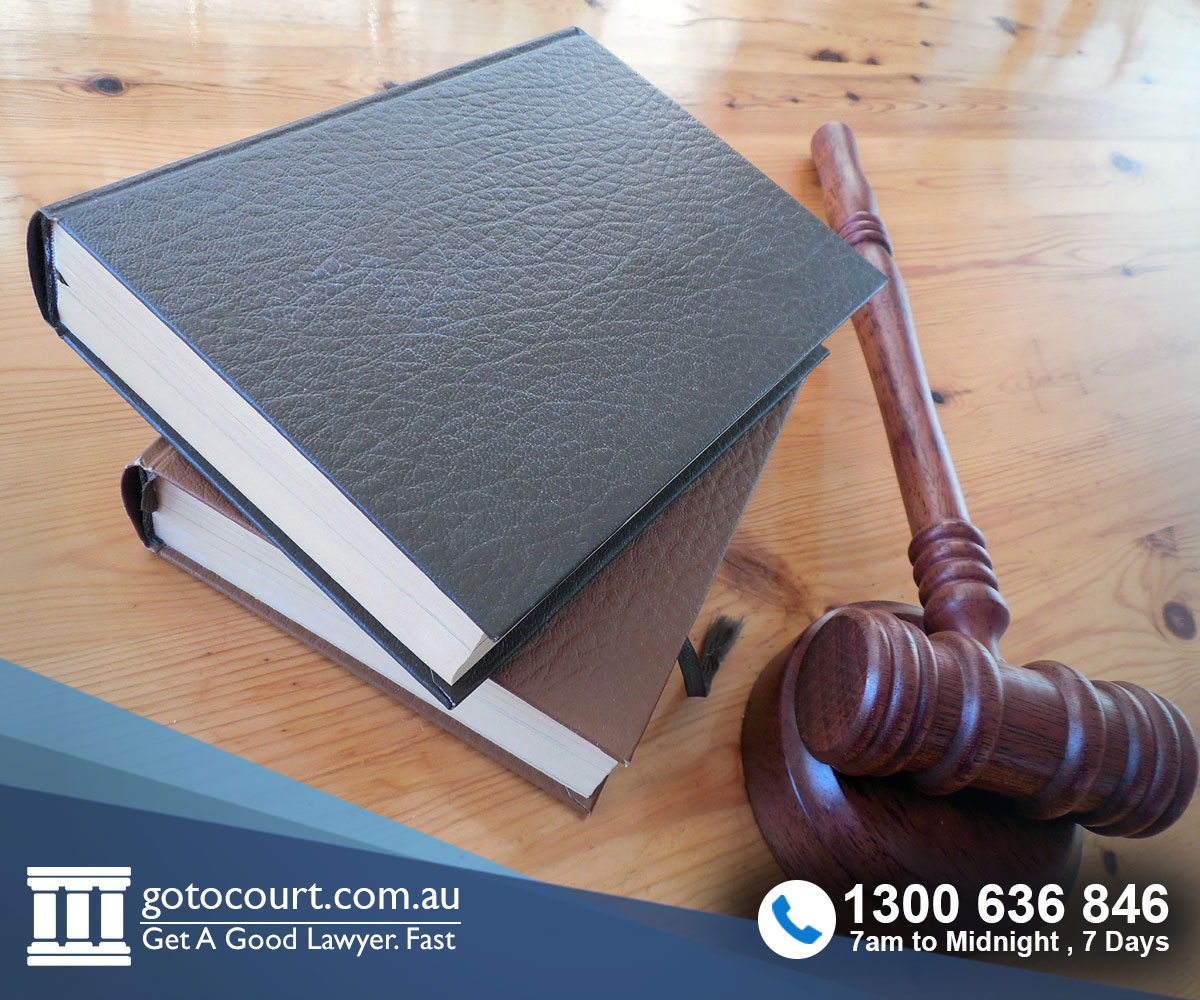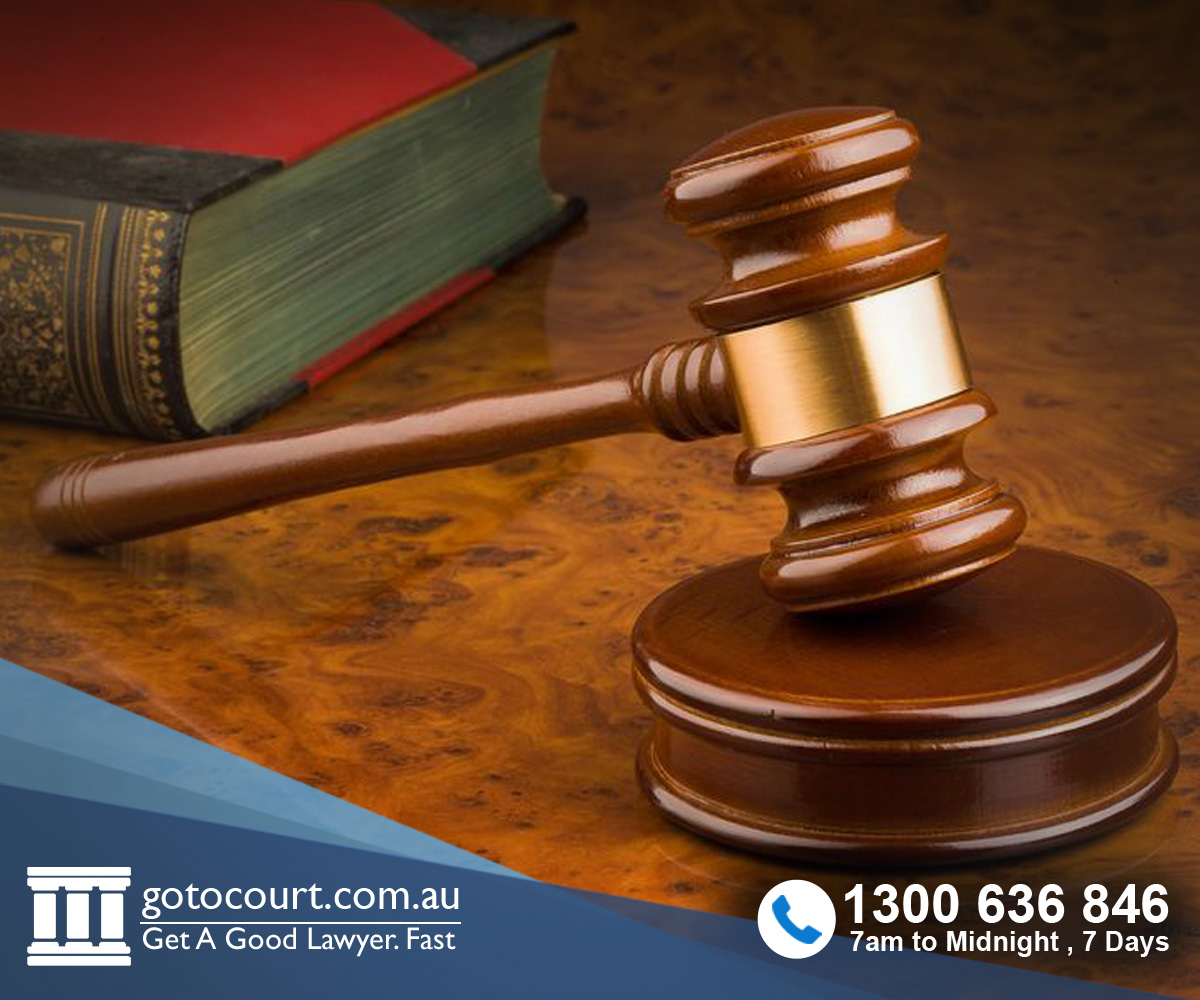Call our lawyers
now
or,
have our lawyers
call you
Alternative Dispute Resolution in NSW
Updated on Nov 24, 2022 • 5 min read • 211 views • Copy Link
Alternative Dispute Resolution in NSW
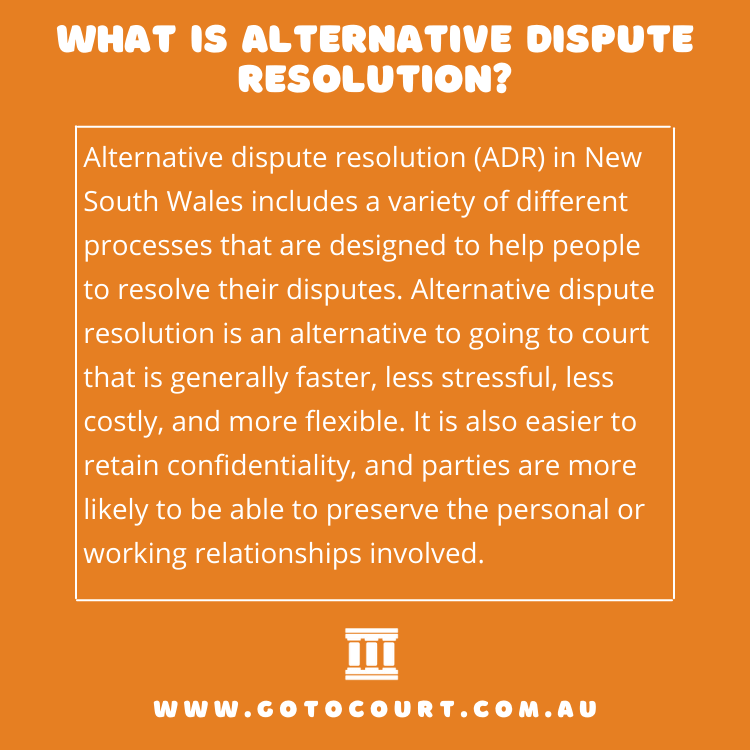
Alternative dispute resolution (ADR) in New South Wales includes a variety of different processes that are designed to help people to resolve their disputes. Alternative dispute resolution is an alternative to going to court that is generally faster, less stressful, less costly, and more flexible. It is also easier to retain confidentiality, and parties are more likely to be able to preserve the personal or working relationships involved.
Many contracts require that parties use alternative dispute resolution in the event of a dispute. In some cases, a court or tribunal may require parties to try alternative dispute resolution before they can take their claim further. This article deals with alternative dispute resolution in New South Wales.
Commencing ADR
You can try alternative dispute resolution in NSW at any time during your dispute.
Negotiation is an informal first step in resolving any dispute and should be attempted before other methods of alternative dispute resolution or going to court. In a negotiation, the parties will generally communicate directly with each other, offering suggestions as to how the matter might be resolved, to try to come to an agreement. In some cases, it may be necessary to conduct the negotiation with the help of an impartial person. Mediation involves engaging an independent party (a mediator) to help the disagreeing parties reach a solution during a confidential meeting which is usually conducted face-to-face, although it may be over the telephone. The mediator helps the parties to clarify what is in dispute, identify possible options and try to reach an agreement. They don’t, however, give legal advice or impose a decision.
The parties will generally talk directly to the others involved in the dispute but they may also have separate sessions with the mediator. There are usually breaks for the parties to consider what has been discussed and get advice or support if needed.
If everyone agrees, the mediation may include support people, lawyers or other professionals. Mediation can be undertaken voluntarily by the parties, but it may also be required as part of a contract or ordered by a court. Sometimes it is part of a government agency process.
Why use mediation?
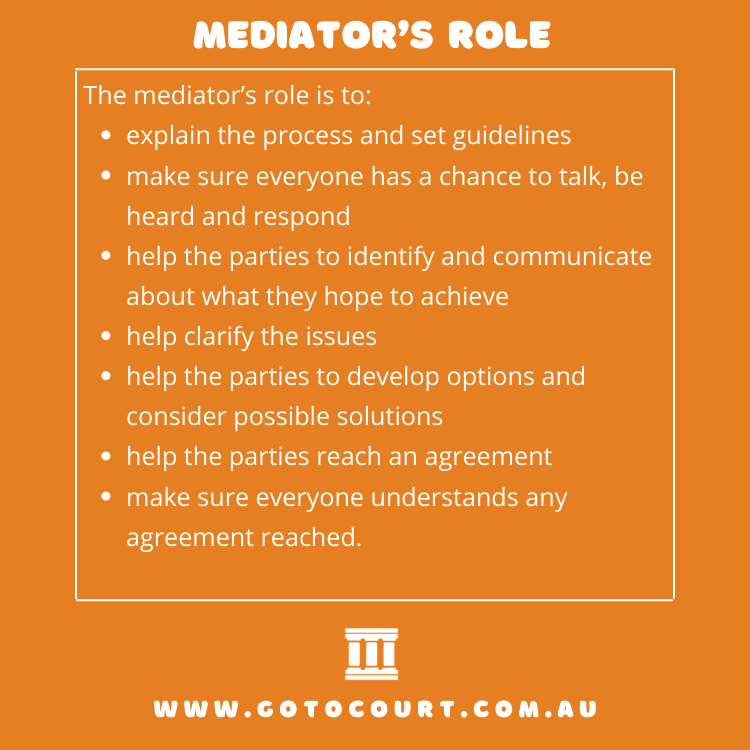
The mediator’s role is to:
- explain the process and set guidelines
- make sure everyone has a chance to talk, be heard and respond
- help the parties to identify and communicate about what they hope to achieve
- help clarify the issues
- help the parties to develop options and consider possible solutions
- help the parties reach an agreement
- make sure everyone understands any agreement reached.
Mediation may be unsuitable if you don’t feel safe when communicating with the other participants, or if there is a power imbalance that prevents one or more of the parties being able to negotiate on their own behalf effectively.
Before mediation, you may want to get legal advice as to what your rights are and what responsibilities you owe. You may also want advice as to what alternatives are available if you don’t reach an agreement.
When seeking a mediator for your dispute, you can use online search tools to find someone suitable.
Arbitration
Arbitration is a formal way of resolving a dispute. Each party presents their case to the independent arbitrator who, after hearing all of the evidence, makes a decision.
Arbitration may be useful if the subject matter is highly technical, or if the parties want a confidential solution. It may be voluntary, ordered by the court or required as part of a contract.
The people in dispute need to agree that the arbitrator’s decision is binding on them. If an arbitrator makes a decision any of the parties is not happy with, they may be able to appeal.
The parties may be represented by a lawyer. Experts may also give evidence for the arbitrator to consider.
Expert determination
A formal means of alternative dispute resolution in NSW is expert determination. This involves the resolution of a dispute through a decision of an independent third party, who is an expert in the issues involved. The parties must have first agreed to be bound by the expert’s decision.
Conciliation
Conciliation is conducted by an independent third party (a conciliator) who helps the parties to identify the issues, consider options and try to reach an agreement. Sometimes a conciliator has professional knowledge of the subject matter.
A conciliator does not make a decision about your dispute but helps lead the parties to a resolution.
Conciliation can be voluntary, court ordered or may be required as part of a contract or by a government agency process. The conciliator’s role is similar to that of a mediator, except that they may give some legal information and give you expert advice on the alternatives for sorting out the issues in your dispute.
It’s usually held face to face, however, it is possible for the conciliator to hold separate sessions. It may also be possible to hold the conciliation by telephone. Lawyers are usually present during conciliation and, in some cases, experts may also be present.
Courts, Tribunals and Alternative Dispute Resolution in NSW
Any process involving alternative dispute resolution in NSW can be used before, during or after the formal court process. NSW Fair Trading provides a dispute resolution process if you have a problem with a business, trader, landlord or tenant. The NSW Civil and Administrative Tribunal (NSWCAT) also offers a dispute resolution process through its Consumer and Commercial Division.
If you require legal advice or representation in any legal matter, please contact Go To Court Lawyers.


Affordable Lawyers
Our Go To Court Lawyers will assist you in all areas of law. We specialise in providing legal advice urgently – at the time when you need it most. If you need a lawyer right now, today, we can help you – no matter where you are in Australia.How It Works








1. You speak directly to a lawyer
When you call the Go To Court Legal Hotline, you will be connected directly to a lawyer, every time.


2. Get your legal situation assessed
We determine the best way forward in your legal matter, free of charge. If you want to go ahead and book a face-to-face appointment, we will connect you with a specialist in your local area.


3. We arrange everything as needed
If you want to go ahead and book a fact-to-face appointment, we will connect you with a specialist in your local area no matter where you are and even at very short notice.


